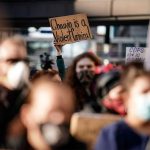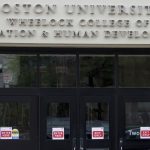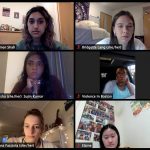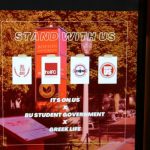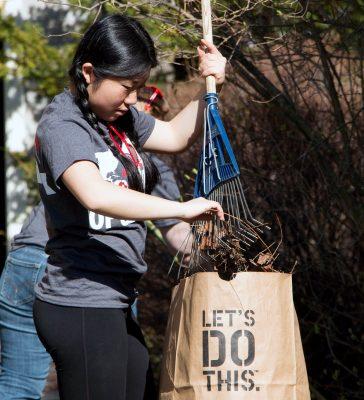
Boston University’s Community Service Center is holding its second Global Days of Service installment this weekend, along with events throughout the month, in a hybrid format following its first virtual event last year.
GDS is an annual community service event where alumni, faculty and students are given opportunities to volunteer their time remotely or in person. A similar Fall Days of Service event runs on select days in the Fall semester.
“We’ve really strived to find some alternative approaches,” said Orpheo Speer, director of the CSC.
Potential opportunities include food and clothing donations for low-income communities and those experiencing homelessness, among other virtual activities. Limited in-person volunteer opportunities are also available, if they are deemed COVID-19 safe, and participants may submit hours from independent volunteering outside of the event.
Speer said some long-term community partners the CSC has worked with in the past were unable to work with BU student volunteers this year.
“With the financial times of going through a year of dealing with COVID, their resources might be a little bit more extended,” he said, “and therefore not have the same ability to work with us or provide a space for some opportunities where our volunteers might be able to engage.”
College of Arts and Sciences senior Shruti Kumta, a program manager for Community Partnerships and Days of Service, wrote in an email the CSC office made an effort to find opportunities for volunteers.
“For both Days of Service this year, we tried to be creative, conscientious, and adaptable in planning the opportunities we offered to students,” she wrote.
Kumta noted the CSC’s goals this year were to continue engaging students with issues that are important to members of the community as well as “provide BU students with safe opportunities to connect with each other and Boston while learning to serve, even if [Learn from Anywhere].”
Sargent College of Health and Rehabilitation Sciences junior Andrew Kwon, also a program manager for Community Partnerships and Days of Service, wrote in an email the event traditionally involved assigning students to work in person around Boston.
“With the pandemic, [Kumta] and I had to change the structure of FDS and GDS,” Kwon wrote, “because of the fact that it would be dangerous to send students during these times, both for the students and community partners.”
Assistant Director of Alumni Programs and Events at BU Maggie Regan worked to coordinate with alumni worldwide to find volunteer opportunities.
“The [Office of Development and Alumni Relations] comes up with the opportunities,” Regan said, “so we are the ones who do the research to find different opportunities that are available.”
Normally, Regan said, the office would offer some online volunteer opportunities, but turnout was typically greater for in-person events. When the pandemic had just begun last year, they switched the GDS to a remote format that still had a large impact.
“We had 131 projects last year, 960 volunteers and we were present in 71 cities,” Regan said. “So, we still do get a decent amount of people.”
However, Regan noted that changes caused by the pandemic have pushed the office to explore volunteering activities they previously would not have.
“We’re sort of discovering all these new opportunities that we possibly wouldn’t have looked into in the past,” Regan said, “because we were more focused on an in-person model.”
Regan cited 37 volunteering opportunities the Office of Development and Alumni Relations is promoting this year. Typically, the office chooses opportunities to promote based on their own research, but alumni can offer ideas for BU to look into as well.
“We had somebody in Nepal submit a site, we had a woman in Hawaii submit a site,” Regan said. “People are almost hungry to help their own personal communities.”
One alumna who submitted a site was Julie Okamura, who graduated from Sargent in 1991.
Okamura has submitted two volunteer sites to be promoted by the alumni office for GDS. In 2019, Okamura said she was involved with a dance project for children who have cerebral palsy in Hawaii where she lives. This year, she started an exercise group for seniors.
“Whether you’re doing it virtually or in person, or like me independent and just putting it in,” she said, “you feel like you’re contributing and that the school is recognizing it.”

